
1 Gold Zebra foamy bells
HEUCHERELLA, ZONES 4 TO 9
Gold Zebra’s yellow and green leaves are accented with brilliant gold and blood-red centers. When watered regularly, this stunner tolerates heat and humidity as it grows up to 8 inches tall and wide. It thrives in full shade to part sun and is often used in containers or as an edging plant.
Why we love it: This deer-resistant wonder has showy white flowers that attract bees, butterflies, hummingbirds and other helpful pollinators.
2 Campfire coleus
PLECTRANTHUS SCUTELLARIODES, ANNUAL
Set your beds ablaze with the bright orange foliage of Campfire. This big, bold plant tolerates both part shade and full sun. Reaching about 28 inches tall and nearly as wide, it’s an evergreen perennial that won’t survive frost, so most gardeners grow it as an annual.
Why we love it: The National Gardening Association also highly recommends this hardy, beautiful, no-fail coleus for new gardeners.
3 Copper Cascade foamy bells
HEUCHERELLA, ZONES 4 TO 9
The rosy orange-gold foliage of Copper Cascade lasts throughout the year. This trailing plant mounds up to 12 inches tall and 30 inches wide when in full to part shade. Well-draining, moist soil helps retain its exceptional color. In the late spring to early summer, tiny white flowers appear.
Why we love it: It’s an alluring addition to containers and looks lovely spilling over landscape rocks.
4 Arkansas blue star
AMSONIA HUBRICHTII, ZONES 4 TO 9
Diese Geschichte stammt aus der October/November 2019-Ausgabe von Birds & Blooms.
Starten Sie Ihre 7-tägige kostenlose Testversion von Magzter GOLD, um auf Tausende kuratierte Premium-Storys sowie über 8.000 Zeitschriften und Zeitungen zuzugreifen.
Bereits Abonnent ? Anmelden
Diese Geschichte stammt aus der October/November 2019-Ausgabe von Birds & Blooms.
Starten Sie Ihre 7-tägige kostenlose Testversion von Magzter GOLD, um auf Tausende kuratierte Premium-Storys sowie über 8.000 Zeitschriften und Zeitungen zuzugreifen.
Bereits Abonnent? Anmelden
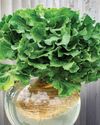
Basics of Hydroponics
Use these top tips and plant picks to have a successful soil-free garden
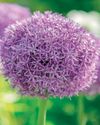
Rooted in Resilience
These hardy perennials will thrive in most zones
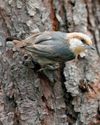
Social and Supportive
Brown-headed nuthatches take a helpful approach to raising their young
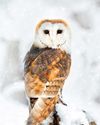
All About Owl Pellets
And why you should give a hoot about them
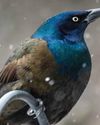
Ask the Experts
Advice from our pros about houseplants, bird feeding and more
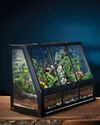
BRING THE OUTDOORS IN
Making a terrarium is about as close as you can get to a Zen DIY project. Once you have gathered the proper materials and squared away your plant selections, it's as simple as layering it all together and watching your mini ecosystem thrive. Here, I'll walk you through my foolproof process and cover all the required elements for good filtration, healthy soil, strong root growth and resistance against fungus and disease.
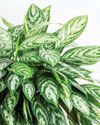
GROW THIS. NOT THAT
Six easy-to-grow houseplants—and six that may not be the right choice for you
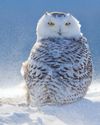
Winter MAGIC
Forecasts may be frigid, but grab your binoculars because birding opportunities are still incredible
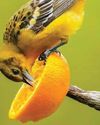
Sense or Nonsense? - Why some birds can taste and smell - but others can't
Does a porcelain berry taste like a blueberry to a gray catbird? Does a block of lard smell like frying bacon to a northern flicker? The short answer is no. While some avian species do have a well-adapted sense of taste or smell, they can't distinguish between flavors and odors the way humans can. They're not picking up every ingredient in the suet you put out, says José Ramírez-Garofalo, an ornithology researcher at Rutgers University in New Jersey and the director of Freshkills Biological Station in Staten Island, New York.
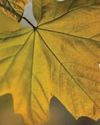
Maple Mania - Amazing facts about this fall foliage mainstay
Amazing facts about this fall foliage mainstay